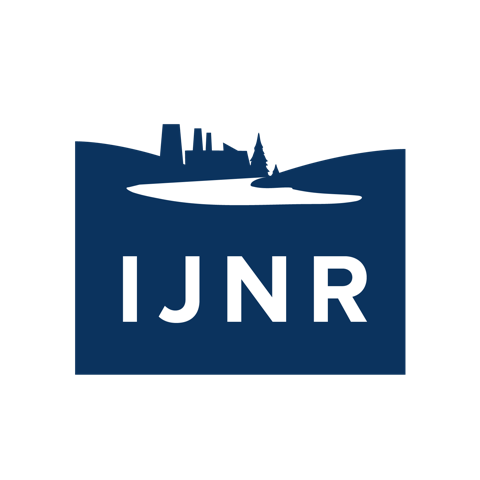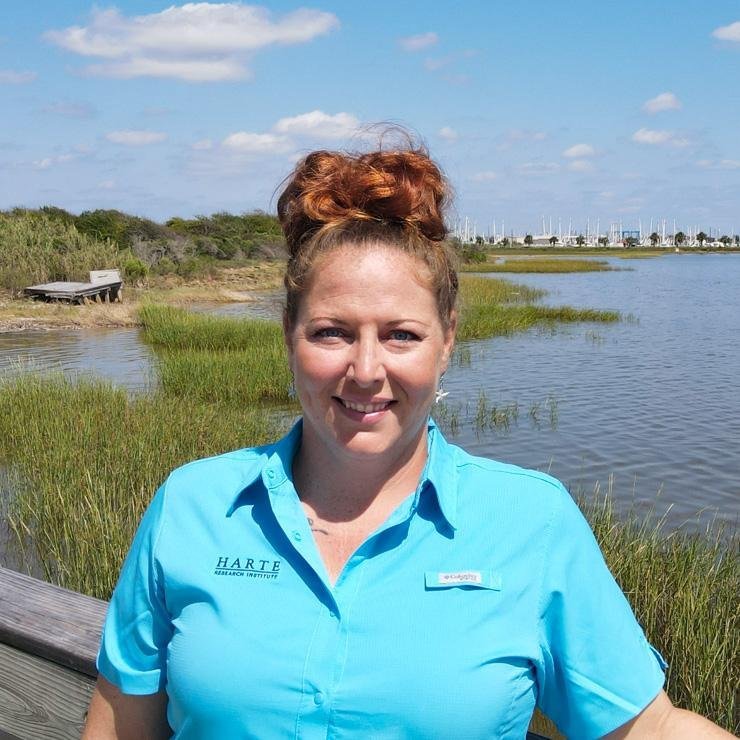2022 SEJ Post-Conference Tour Itinerary:
South Texas Coast
Roster of Participating Journalists
April 3-5, 2022
Sunday, April 3
8 a.m. - Bus departs for Corpus Christi (lunch on the bus)
Toxic Tour: The Coastal Bend's Industrial Expansion and Troubled Legacy
In 1926, the Port of Corpus Christi was officially established as a deep-water port serving ships that transported commodities such as oil, gas and cotton. Like many places along the Gulf Coast, Corpus Christi’s port positioned the city to take advantage of the rapidly growing industries shaping the country, especially those derived from fossil fuels. To this day, the city is tied to their fate. The result is a coastal skyline dotted with the silhouettes of heavy industry. While much of the country is focused on the clean energy transition, Corpus Christi has billions of dollars invested in future oil and gas projects. While bolstering the city’s economic fortunes, this heavy industry build out has come with environmental and public health costs, leading a growing coalition of citizen’s groups and environmental non-profits to push back against industry expansion as they envision a different future for the Coastal Bend of Texas.
11 a.m. - Fellows board boats for a trip out onto the bay.
Errol Summerlin
Co-founder, Coastal Alliance to Protect our Environment
Love Sanchez
Co-founder, Indigenous Peoples of the Coastal Bend
Jennifer Hilliard
Treasurer, Ingleside on the Bay Coastal Watch
Patrick Nye
President, Ingleside on the Bay Coastal Watch
1 p.m. - Fellows return from their tour of the bay and re-board the bus for a windshield tour of the Corpus Christi shipping channel and associated industries. The tour concludes at the Brooks A.M.E. Worship Center for a panel discussion of the public health and environmental justice impacts of Corpus Christi’s industrialization and efforts underway to challenge the status quo.
2 p.m. - Neighborhood Watch: Concerned Citizens and Community Groups Push Back Against Industrial Development of the Texas Coast
Pastor Adam Carrington
Pastor, Brooks A.M.E. Worship Center
Brandon Marks
Texas Campaign for the Environment
Elida Castillo
Program director, CHISPA Texas
Lamont Taylor
Vice chair, Hillcrest Residents Association
4:30 p.m. - Bus departs for boat landing at Padre Island and ride to Texas A+M’s Laguna Madre Research Station. Fellows bring everything they’ll need for the night.
5 - 7 p.m. - Fellows explore the island. Kayaks provided.
7 p.m. - Dinner is served.
8 p.m. - Science at Sea Level: An Overview of Research on the Gulf of Mexico and Its Bays and Estuaries
Fellows settle in for a welcome session, history of the Laguna Madre Field Station and preview of tomorrow’s activities.
David Yoskowitz
Senior executive director, Harte Research Institute for Gulf of Mexico Studies, Texas A&M Corpus Christi
Overnight at Laguna Madre Research Station
Monday, April 4
7 a.m. - Rise and shine! Fellows get dressed and join the group for breakfast.
Preserving the Future of a Fishery: Recreational Anglers Wade in to Marine Conservation
7:30 a.m. – The backwaters, marshes and bays of the Gulf of Mexico have brought recreational anglers to the area for well over a century. Chuck Naiser made a career out of getting his clients “on the fish.” Eventually, that led him to a second passion – preserving the experience for generations to come. We’ll hear about Naiser’s non-profit and the potential of (salt)grassroots conservation campaigns.
Chuck Naiser
Fishing Guide/Founder & CEO, FlatsWorthy, Inc.
Small Group Field Trips
8:30 a.m. - 12:30 p.m. - Fellows break out into three small groups for a morning of site visits to field locations around the Laguna Madre. Each group will rotate through the following three activities:
Session 1: Boat Tour of Barrier Islands and Bird Rookeries
Fellows get out on the water to visit a few barrier islands, rookeries and other important habitat as they learn about the coastal ecosystem’s importance to migratory birds and nesting waterfowl and how the fate of these systems is linked to our feathered friends’ future.
Session 2: Estuarine Ecosystems Tour
Like many islands along the Gulf Coast, we are currently standing on sediments that were dredged up from the bottom to keep shipping channels deep enough for the large tankers that ply the surrounding waters. But don’t let the human-built status fool you, a complex ecosystem has taken root here. We’ll take a hike to see it up close.
Session 3: Island Ecology Hike
The Laguna Madre is home to a diverse array of flora and fauna, from saltwater marsh grasses to bottlenose dolphins, and provides essential services in our changing world – serving as a storm buffer as well as a carbon sink. We will head out on the water with our hosts as we talk about some of the ongoing research shedding light on the importance of the Laguna Madre and the conservation practices most likely to help preserve it.
Dale Gawlik
Endowed Chair for Conservation & Biodiversity, Harte Research Institute for Gulf of Mexico Studies, Texas A&M Corpus Christi
Aaron Baxter
Research specialist, Center for Coastal Studies, Texas A&M Corpus Christi
Jay Tarkington
Program director, Center for Coastal Studies, Texas A&M Corpus Christi
1 p.m. - Lunch at research station
1:30 p.m. - Building Resilience: Coastal Engineering and Climate Change (group session)
3 p.m. - Fellows depart for the mainland
5:30 p.m. – After showering and freshening up, fellows assemble in the hotel lobby for the short walk to dinner.
7 p.m. - Dinner presentation- Sea Changes: How Texas Fisheries Are Navigating Climate Impacts and Shifting Conditions
We’ve heard about the recreational fisheries along the Texas Coast, but what about the commercial industry that brings oysters, red snapper, grouper and shrimp to tables and restaurants up and down the coast? After dining on some of the Gulf’s bounty, we’ll learn what folks fish for along the coastal bend and the political, economic and environmental challenges they face to sustain these fisheries.
Tony Reisinger
Cameron County Marine Extension Agent Texas Sea Grant / Texas A&M AgriLife Extension Service
Overnight at Holiday Inn, Corpus Christi
Tuesday, April 5
7 a.m. - Breakfast at hotel
8 a.m. - Bus departs for Palacios, TX
Wild Caught, Hard Fought: Texas Shrimpers Confront Changing Climate, Regulations and Farmed Alternatives in Struggle to Keep Fishing
10 a.m. - When it comes to seafood in the U.S., shrimp is the “best seller.” In Texas, these tiny crustaceans make up a jumbo-sized part of the commercial fishing portfolio, contributing $750 million to the state economy and employing thousands of shrimpers and processors – many of them along the coast. Yet those landings are a tiny piece of the pie. Nearly 90 percent of shrimp eaten in the U.S. is imported and farm raised. Making matters worse, climate change is fueling other challenges to maintaining a sustainable shrimp fishery. Here in Palacios, the “Shrimp Capital of Texas,” we’ll board a shrimp boat for a dockside tour, learn the difference between Gulf and bay shrimping and meet some of the people trying to keep the industry alive.
● Gary Graham – former marine education specialist, Texas Sea Grant/current owner, Palacios-based shrimp vessels
11:30 a.m. —Bus departs for South Bay Park for a waterfront picnic lunch.
Slow Tide: Texas Finally Gives the Green Light to Oyster Aquaculture
12:30 p.m. – Oyster aquaculture is a $200 million-plus industry in the United States, but Texas has been slow to embrace this kind of coastal farming. With the passage of a couple of bills in 2019, Texas became the last coastal state in the nation to allow commercial oyster aquaculture. The pandemic, of course, disrupted a lot of the momentum of building up the fishery and the markets for the product, but groups are applying for permits, and here in Palacios, folks at Texas A&M Corpus Christi are helping would-be oyster farmers learn the trade through their demonstration farm. We’ll go get a tour and talk about the promise and the challenges of building a new fishery.
Bailey Schacht
Research Technician, Harte Research Institute, Texas A&M Corpus Christi
Other
Speakers
TBA
2:00 p.m. - Bus departs for Houston
5:00 p.m. - Workshop Adjourns*
*For Fellows staying overnight in Houston, dinner and lodging will be provided.
6:30 p.m. - Remaining fellows meet in lobby for walk to dinner.
Overnight at Royal Sonesta Houston Galleria















